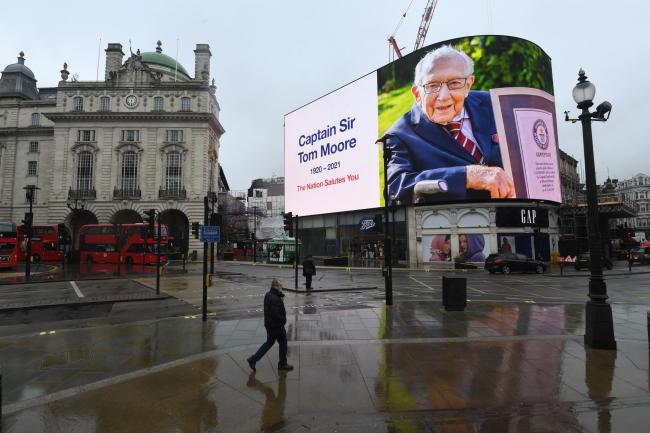This week saw the sad news of the death of Captain Sir Tom Moore, the British Army Veteran who raised almost £33 million pounds for the NHS in the run-up to his 100th birthday. Captain Tom became a symbol of hope and patriotism for much of the UK as we navigated the early stages of the pandemic, and remained integral to the British narrative throughout 2020 thanks to his message of hope and positivity: "tomorrow will be a good day."
As well as receiving a Knighthood, he topped the charts and broke worlds records with his recording of 'You'll Never Walk Alone', was given the Pride of Britain award, earned at least two honorary doctorates from Cranfield and Bradford, and became the captain of the FA's Lionhearts squad, among many other accolades.
The nation has mourned his death with the same spirit in which they celebrated his life. A moment of silence in Parliament was observed and claps erupted from doorsteps across the country to show their appreciation for the 'dignity and determination' with which he supported the nation through the last year. After the news of his death on the 2nd February, a petition to give him a state funeral has already received over 200,000 signatures. Prime Minister Boris Johnson seemingly signalled his support for a statue of the centenarian, while Health Secretary Matt Hancock said of the news:
"We should find a way to make sure we mark the memory of Captain Tom and thank him for the contribution he made to the NHS. [...] I will ensure that we mark his contribution properly and appropriately at the right moment. [...] I think everybody would welcome that... he touched the hearts of the nation and we should remember that."
With memory and memorialisation January's theme of the month, Captain Tom's passing reminds us that remembrance wears many faces. Questions of public versus private memory have been debated in reference to almost every war in history, and the COVID-19 struggle is no different. The political work that memorialisation can do was a major theme of our Twitter discussions this month, and the death of Captain Tom is an important contextualization of this. This was captured in the controversial (now deleted) comments by Reverend Jarel Robinson-Brown that the memorial 'National Clap' for was a display of the 'cult of White British Nationalism'.
There is no doubt that the memory of Captain Tom will live on in British history; the joy he brought to so many over the past year is a wonderful reflection of his generous and cheerful spirit. Nonetheless, at this time, we must ensure that our collective memory and resulting memorialisation is driven by the wishes of his family and loved ones. We at the DRN send our condolences to them. Rest In Peace Captain Tom.
See the full newsletter here: Memory and Memorialisation
